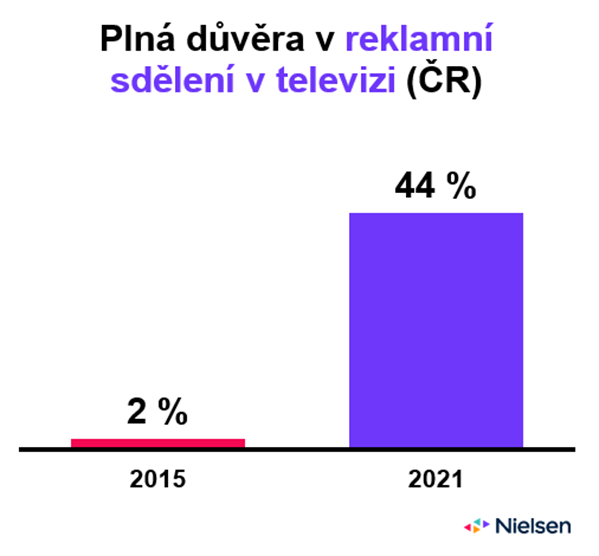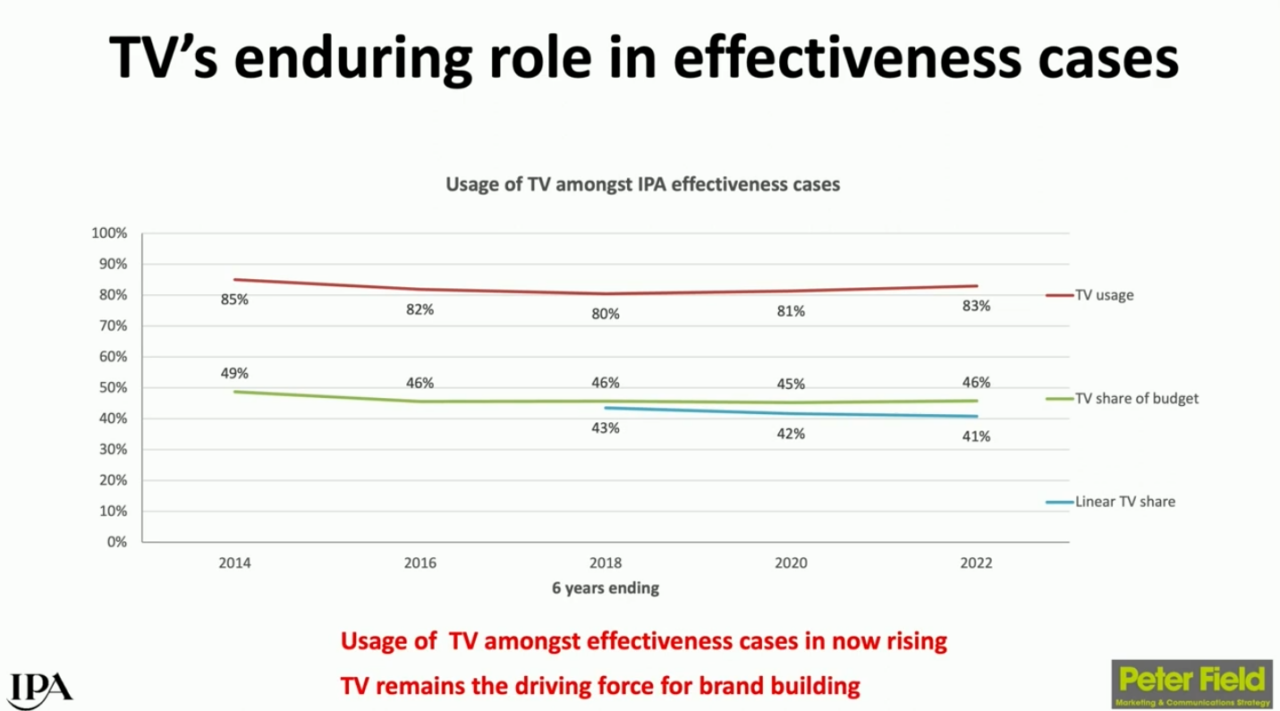Television has become an integral part of everyday life for billions of people around the world. Many people have grown up with television programmes and stations that have shaped their views, attitudes and values. And this long-term influence and long history of functioning as a major source of information, entertainment and culture in society lend television an aura of credibility and authority that no other medium can boast.
The Unique Benefits of Television
Advertising on TV is irreplaceable. Advertisers who believe that they can get by with social media campaigns in today’s digital age and that TV no longer offers any benefits are digging their own grave. The wiser ones have already figured out that the ideal, refined solution is a hybrid approach, i.e. combining modern media such as social networks with TV advertising to boost social media campaigns, increase their effectiveness and give them a stamp of credibility.
But beyond trust, another factor has recently surfaced and as research shows, it is key to the effectiveness of campaigns: attention. In this respect, too, television has no competition. Let’s take a closer look at both of TV’s strengths.
Television Is the Most Trusted Medium
Television is still perceived as the most trusted source of information. And it consistently outperforms social media in terms of trust. Social media content is perceived as less trustworthy or influenced by fake news and misinformation.
One of the reasons why this is the case is that television is a highly regulated medium and the state is strict about adherence to ethical broadcasting standards and multi-phase verification of information. This helps television avoid scandals due to fraud, inappropriate placement of advertising or privacy issues that often accompany online advertising. Television is simply held to the highest standards - and of course, viewers know this.
Trust relates not only to television as a medium but also to television advertising. The Czech Republic is no exception in this respect. According to the Trust in Advertising study conducted in autumn 2021 by Nielsen and focused on consumer trust in various communication channels in 56 countries, the trust of the Czechs in TV advertising increased significantly between 2015 and 2021. A total of 44% of respondents said they trusted it completely. Compared to 2015, this is a significant increase: a large proportion of respondents who tended to have confidence in TV advertising trusted it completely in 2021.
 Source: Nielsen, Trust in Advertising 2021
Source: Nielsen, Trust in Advertising 2021The Glimmer of Consumer Confidence in TV Carries Over to the Brand
Credibility is one of the most important attributes a brand must build to succeed in a highly competitive marketplace. It is closely linked to the relationship with the customer, which must be built over the long term along with trust. It is only logical that a particular consumer primarily seeks out a brand for which he or she has some degree of trust.
TV can help advertisers significantly with this. As Peter Field said at a conference hosted by marketing organisation Newsworks in March 2023, the issue of brand trust is a relatively new development, and brands should take this indicator very seriously. Commenting on the statement made by Wavemaker UK CEO Kelly Parker who spoke on a panel discussion at the event, saying that the environment in which a brand appears is incredibly important for brand building, Peter Field added that other media environments can in turn reduce the perception of brand credibility. In particular, he identified social media as an environment with low trust in advertising.
Attention in the Spotlight
Recently, the interest of experts and marketers has also focused on other important factors, among which attention is of significant importance. According to the 2023 advertising effectiveness study The Triple Opportunity of Attention, attention is declining faster on some platforms than others. It is clear that higher-attention platforms bring greater mental accessibility to a brand than low-attention platforms, and therefore have a more significant impact on customer acquisition, brand profit growth and market share.
According to the study, higher-attention media platforms allow creative to work more effectively, which can increase business impact by up to 65%. The attention that emotions, drama and critical moments evoke also helps to increase the maximum impact of a creative work, as it prolongs the audience’s attention on the one hand and contributes to storing the brand in the memory of potential customers on the other.
Research from Finecast and Amplified Intelligence in 2022 came to similar conclusions, finding that the platform has the biggest impact on advertising attention. The study’s findings show that there is a proven relationship between attention, short- and long-term brand performance, and mental availability, which is the state of mind when a customer thinks about a brand when considering a purchase. The research also proved that TV elicits greater attention than other platforms. This is very likely due to the wide range of inherent benefits of TV advertising, which other media channels can hardly replicate.
Of course, that is supported by another factor. Television advertising is something familiar to viewers, something that viewers expect and are willing to accept in exchange for interesting content, thanks to the long history of advertising on television. They tend to perceive advertising on other devices as more intrusive and are more inclined to avoid it – as they have the option to do it.
TV advertising therefore has the advantage of increasing the chances of attracting the attention necessary to achieve the desired effect of the advertising message. In addition, it has been found that attention does not wane with increasing length of the TV advertisement. There is therefore more time for the advertising message - and this again means bonus points for TV, which offers longer advertising messages than other media channels.
Trust and Attention for More Effective Campaigns
As Peter Field points out, the role of TV in terms of campaign effectiveness is growing. Television is a great platform for delivering really important messages that increase emotional and mental accessibility. And it has been shown that campaigns that used TV above average were significantly more effective than those that used it less. According to Peter Field, companies that want to make the most of the benefits offered by strong emotional advertising to stimulate long-term brand growth must use high-attention platforms such as television.
 Source: thinktv.com.au
Source: thinktv.com.auCzech E-shops Successfully Use the Effectiveness of TV Advertising
The conclusions of research on the effectiveness of advertising on television and radio are also appreciated by major Czech e-shops. According to a discussion at the Eshopista conference held by Acomware on 5 March 2024, campaigns on these platforms have an effect on online retailers in the form of higher customer interest in their products.
For example, Eva Šípková, Head of Customer Experience at Alza.cz, shared with the audience the impact of Alza’s campaign “If you order by midnight, you’ll have it in Alzabox in the morning”. Alza was using this slogan before the launch of the TV campaign. But it was only after the campaign was launched on TV that the company noticed changes in customer behaviour. “The moment the campaign was launched, customers became extremely demanding and required express delivery. I don't want to say that we were caught off guard, but it surprised us how quickly they accepted the offer and started using it in the sense of how successful we were and that we became a victim of our success,” said Eva Šípková.
There is no doubt about the importance of television for successful branding and business success of companies. Experts already know this. And marketers with an open mind have figured it out, too.
The Next Myth: TV is Expensive
Since there are more than enough myths about TV and TV advertising, in the next article we will look at one of the most important ones, namely the price of TV advertising, or the price-performance ratio.
Sources: Peter Field, Thinkbox.tv, Nielsen, Finecast, thinktv.com.au

